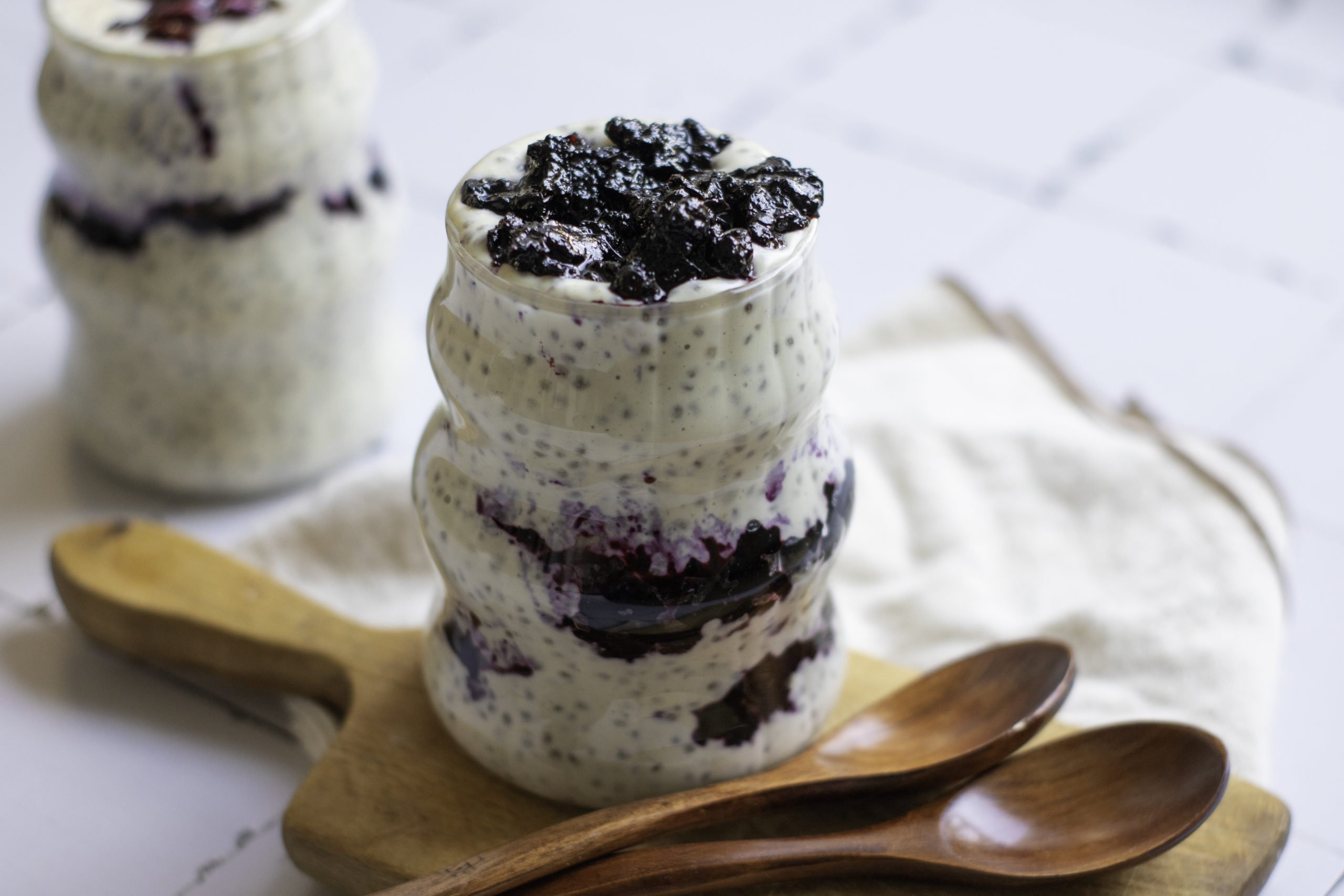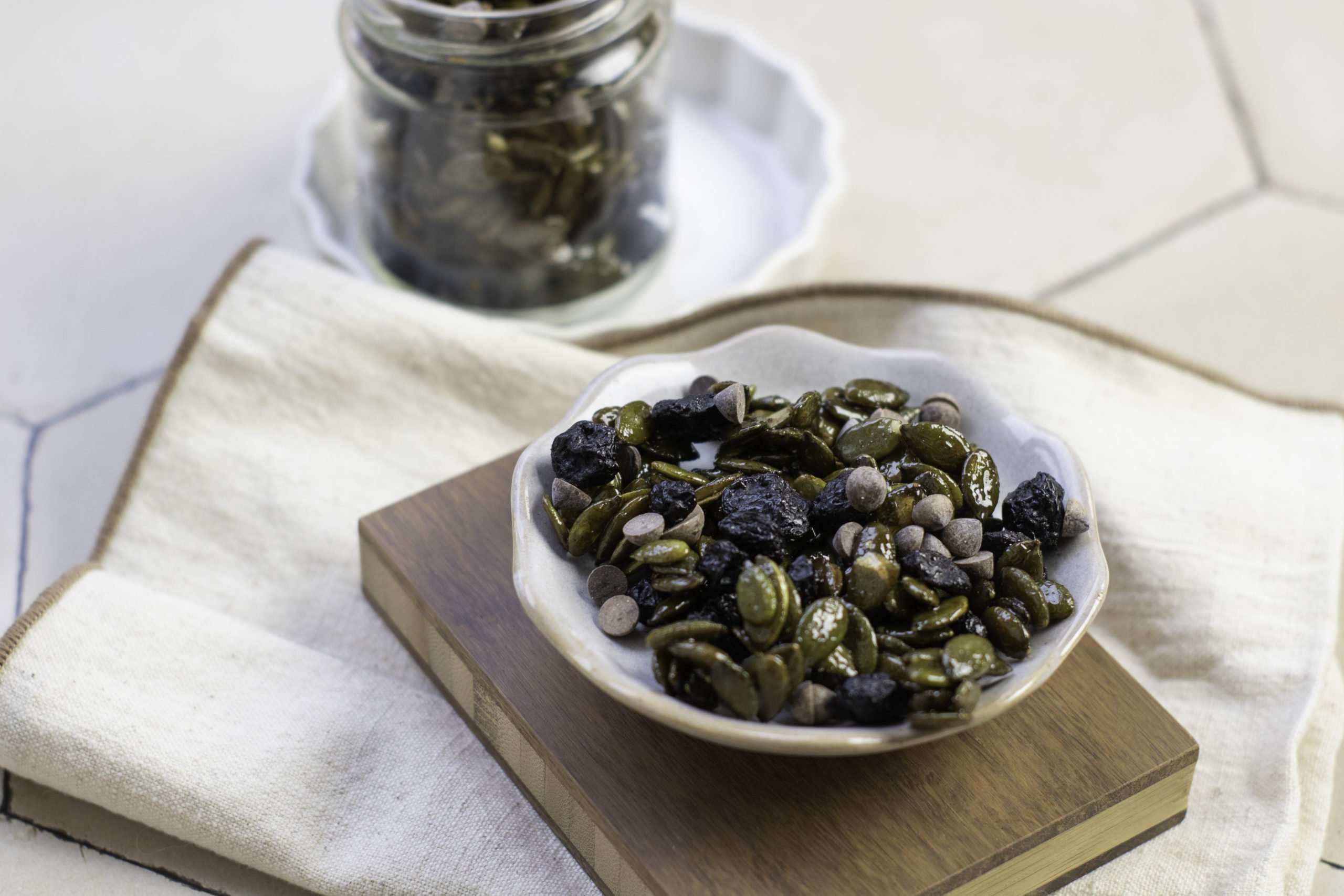In the movie Limitless, Bradley Cooper’s character takes a pill and instantly becomes hyper-intelligent. Similarly, Scarlett Johansson’s Lucy accidentally absorbs a brain-boosting psychedelic drug and gains all kinds of superhuman mental and psychic abilities.
In both cases, however, the side effects are considerable, including, for Cooper, long blackout periods and impending death; and for Johansson, merging with a supercomputer and vanishing into the space-time continuum.
I’m not tempted to take either fictional drug, even if it would give me a bunch of extra IQ points. But what if there were real foods that optimized your brain health — meals that could prevent cognitive decline and dementia (or delay them by decades)? And what about ingredients that could help you achieve lifelong cognitive wellness?
Well, good news!
Drs. Dean and Ayesha Sherzai, renowned neurologists and authors of The Alzheimer’s Solution and The 30-Day Alzheimer’s Solution, have dedicated their careers to studying how nutrition and lifestyle affect brain health.
The Sherzais have discovered that there are entire classes of foods that provide the brain with essential nutrients while minimizing harmful foods that contribute to decline. And in a time when Alzheimer’s disease and other forms of dementia are on the rise, this knowledge is more crucial than ever.
So what have the Drs. Sherzai found? The eating patterns that most powerfully support lifelong cognitive wellness all have one thing in common: lots of whole plant-based foods. And they’ve identified nine extra-powerful brain-boosting foods, which they’ve alliteratively dubbed the NEURO 9.
In this article, we’ll explore the NEURO 9, along with foods to avoid that may increase cognitive risk. And you’ll also get seven delicious, nutrient-rich recipes that make it easy to incorporate brain-healthy choices into your daily routine.
The Science of Brain Health: Why Diet Matters

Before we get to specific ingredients and foods, let’s talk for a minute about why your brain is so sensitive to your dietary choices. For one thing, the brain is one of the most energy-demanding organs in the body. While it weighs around 3% of body weight, it consumes around 20% of daily calories.
And the foods you eat directly influence how your brain functions. By impacting inflammation, oxidative stress, and vascular health, food affects three of the key factors in cognitive decline and neurodegenerative diseases like Alzheimer’s.
One of your brain’s best “tricks” is neuroplasticity, the ability to learn and change by making new neuronal connections. It turns out that diet plays a crucial role in neuroplasticity by providing essential nutrients that support brain cell growth and repair.
That’s right: nutrient-dense foods (containing omega-3s and antioxidants specifically) can support learning, memory, and recovery from brain injuries. And these plant-based foods not only provide good stuff for your brain but can also fight some harmful factors contributing to cognitive decline.
The MIND Diet
One of the plant-forward, brain-friendly diets even has a clever acronym: MIND. The MIND Diet stands for Mediterranean-DASH Intervention for Neurodegenerative Delay, and is a fusion of two other popular diets: Mediterranean and DASH (whew, another acronym!).
The Mediterranean diet is all about enjoying plenty of fruits, veggies, whole grains, and healthy fats. It’s been associated with lower heart disease rates and might even help you live longer.
DASH stands for Dietary Approaches to Stop Hypertension. It focuses on reducing sodium intake to help manage blood pressure while encouraging a mix of nutrient-packed foods. One large study found that long-term adherence to this diet was associated with healthier blood pressure and reduced cognitive decline.
The MIND diet combines elements from both of these diets, but it specifically highlights foods and nutrients that research suggests are beneficial for brain health. A 2015 study compared all three diets — Mediterranean, DASH, and MIND — and found that all three reduced Alzheimer’s risk when followed pretty much to the letter. The MIND Diet was also found to be effective in lowering dementia risk at what the authors called “moderate adherence.”
The MIND Diet limits the intake of animal and high saturated fat foods while emphasizing natural plant-based foods, especially berries and green leafy vegetables. But berries and greens aren’t the only foods shown to protect cognitive function.
The NEURO 9: Top Brain-Boosting Foods
The NEURO 9 are the top foods that research has shown are crucial for optimizing brain health and function through their anti-inflammatory and antioxidant properties. Drs. Dean and Ayesha Sherzai recommend these foods to protect your brain through mid-life and beyond.
1. Green Leafy Vegetables

Leafy greens are packed with folate, vitamin K, and antioxidants for brain protection.
A 2018 study discovered that these superfoods were way more powerful than anyone could have guessed. People who ate an average of one and a third servings per day slowed their cognitive aging by 11 years, compared to people who ate almost no leafy greens.
To put that in perspective, the study defined a “serving” as half a cup of cooked greens or a full cup of raw ones. Not exactly a mountain to climb!
Some of our favorite leafy greens include collards, Swiss chard, spinach, kale, lettuce, and other salad greens.
2. Beans

Beans are high in plant-based protein and fiber, both of which may halt or significantly slow Alzheimer’s progression by preventing the formation of amyloid-β plaque. The fiber, in particular, seems to play a leading role in brain protection, promoting the growth and flourishing of bacteria in the gut microbiome that influence brain health and neuroinflammation.
For optimal brain health, aim for at least three servings of beans per week. Popular bean varieties include black beans, kidney beans, and chickpeas.
For more of me singing (metaphorically only, thank goodness) the praises of beans, here’s a comprehensive article on bean benefits.
3. Berries

These sweet or tart treats are high in flavonoids and antioxidants that help improve memory and combat oxidative stress. A study of female nurses found that those with the highest levels of blueberry consumption delayed their cognitive aging by two and a half years.
Some of the most popular and easily accessible berries, available fresh seasonally and frozen year-round, include blueberries, strawberries, and blackberries.
4. Nuts

Nuts support cognitive function thanks to their healthy fats, vitamin E, and anti-inflammatory antioxidants. These compounds fight oxidative stress that can damage cells, thereby maintaining cell membrane integrity and supporting cell functioning.
Nuts are full of healthy mono- and polyunsaturated fats, which also support brain health.
Popular nuts include walnuts, almonds, and cashews. For more on nuts, read our comprehensive article, Nut Health Benefits: You Won’t Believe How Good They Are for You.
5. Seeds

Many seeds are rich in vitamin E and polyunsaturated omega-3 fatty acids. These fats have been shown to combat cognitive impairment thanks to their anti-inflammatory and antioxidant effects on the brain.
Some of the most awesome seeds come from hemp, chia, flax, and sunflower plants.
6. Herbs & Spices

As a group, and individually, herbs and spices have anti-inflammatory and neuroprotective properties. Some of the best-studied “brain buddy” spices include turmeric, sage, and ginger.
Turmeric, in particular, has an incredible capacity to bind to amyloid protein, the harmful protein associated with Alzheimer’s development.
7. Cruciferous Vegetables

Vegetables in the cruciferous family are brain-boosting all-stars. They’re high in vitamin K, which has been shown to sharpen memory; beta carotene, which helps to slow cognitive decline; and antioxidants such as sulforaphane, which can protect the brain from toxic free radicals.
Examples of cruciferous veggies to include in your diet include broccoli, cabbage, cauliflower, and Brussels sprouts.
8. Whole Grains

Whole grains fuel your brain with essential nutrients like B vitamins and fiber. A comprehensive literature review published in 2023 reported that people who consume whole grains on a regular basis have a lower risk of cognitive decline.
Some of the healthiest whole grains include oats, buckwheat, and quinoa.
9. Tea

Rounding out the NEURO 9 is perhaps a surprising entry: a beverage made from the tea plant (Camellia sinensis). But it may be less surprising once you realize that tea leaves contain catechins and L-theanine, which assist focus and support cognition.
One of the catechins found in green tea, EGCG (try that five times fast), has been shown to be an antioxidant and anti-inflammatory and may promote the growth of neuronal dendrites and axons.
Green tea, white tea, and black tea are all neuroprotective tea beverage varieties.
Beverages and Foods To Avoid for Brain Health
The NEURO 9 are a fantastic brain-friendly bunch, but even they can’t overcome a diet full of foods that damage your body and brain. Here are four of the worst food groups for brain health. Avoid these if you want your best chance at a long life with a clear, active mind.
1. Processed and Fried Foods
Fried and processed foods are high in saturated fats and trans fatty acids, both of which are associated with insulin resistance. This triggers cell oxidation and inflammation, especially in the blood vessels that carry nutrients to your neurons and remove waste products from them. Over time, too many saturated and trans fats can have a significantly negative impact on brain function.
2. Refined Sugars & Artificial Sweeteners

Your brain loves sugar, but only the natural kind — in fruit. When you consume refined sugar absent the fiber that naturally accompanies it in an apple, peach, or banana, your brain gets “shocked” by it. In turn, your brain responds with inflammation and oxidation, which are linked to insulin resistance, brain fog, and cognitive decline.
3. Excessive Animal Products
Meat consumption is most closely associated with increased Alzheimer’s risk, followed by eggs and high-fat dairy products. One plausible theory is that saturated fats and cholesterol contribute to vascular issues affecting the brain, essentially cutting off some blood flow, which both starve neurons of nutrients and clog the brain with waste that doesn’t get disposed of quickly enough.
4. Excess Alcohol

Alcohol is a case where dose may matter a great deal. Some research shows that low intake of alcohol (four drinks a week or less), especially red wine, may actually be protective for brain health. At the same time, excess consumption (defined by the CDC as four drinks per day for women and five for men) can have a detrimental effect on sleep, cognitive function, and brain recovery over time. It may, in fact, be a risk factor for the development and progression of Alzheimer’s.
Lifestyle Factors Beyond Diet: The NEURO Plan
The Drs. Sherzai focus their brain research on more than just food. While the first letter of their acronym NEURO stands for Nutrition, there are four additional letters, each equally important as a lifestyle factor for long-term cognitive health.
In total, NEURO stands for Nutrition, Exercise, Unwind, Restore, and Optimize.
Exercise
Exercising regularly can create more connections between neurons and reduce the risk of dementia. The Sherzais recommend exercising 150 to 300 minutes per week, divided into 3 or 4 sessions.
Unwind

People who experience chronic “bad” stress tend to have higher levels of adrenaline and cortisol in their circulation, which has been associated with neurodegenerative changes in the brain. Managing stress through meditation, yoga, mindful breathing exercises, time spent in nature, and having a supportive community are all effective ways to unwind.
Restore
Sleep has been proven to improve memory recall, regulate metabolism, and reduce mental fatigue. Suffering from a sleep disorder raises your risk of dementia by 17% over 10 years. For most people, seven to eight hours of regular, detoxifying sleep is essential for the brain.
Optimize

Unlike bad stress, which is based on the perception of threat, good stress is triggered by the perception of challenge. And good stress has a positive impact on brain health.
You can challenge your brain through learning new skills, solving problems, volunteering, learning a new language, or learning to dance or play a musical instrument. These activities, known as “multimodal” because they require multiple types of cognition at once, challenge and engage many of your brain’s capacities just as lifting weights strengthens your muscles. Bonus benefit if these challenging activities involve social interactions.
7 Brain-Boosting Recipes
Fuel your focus and nourish your mind with this collection of plant-powered recipes, each crafted with ingredients that support brain health, boost clarity, and calm inflammation. From cozy stews to energizing snacks and feel-good drinks, these dishes are as delicious as they are smart. Let food be your brain’s best friend!
(Each recipe incorporates NEURO 9 ingredients and avoids harmful foods.)
1. Blueberry Walnut Banana Pancakes

Wake up your taste buds and your brain with these Blueberry Walnut Banana Pancakes! Blended with brain-loving ingredients like omega-3-rich flax meal, hemp seeds, and walnuts — plus antioxidant-packed blueberries and memory-boosting oats — these pancakes aren’t just delicious, they’re a stack of smart choices. Sweetened naturally with banana and a splash of maple syrup, every bite is fluffy, wholesome, and bursting with feel-good fuel. Your brain (and brunch crew) will thank you!
2. Blueberry Earl Grey Chia Parfait

Give your brain a little love with this vibrant, flavor-packed Blueberry Earl Grey Chia Parfait. Infused with citrusy Earl Grey tea and layered with warming spices like ginger and cardamom, this parfait isn’t just a treat for your taste buds — it’s full of ingredients that support focus, memory, and overall cognitive health. Omega-rich chia seeds help keep things sharp, while blueberries bring their antioxidant A-game. Finished with a burst of bright orange zest and a swirl of naturally sweet blueberry sauce, it’s a refreshing way to nourish your mind and start your day with intention.
3. Cruciferous Crunch Bowl

This Cruciferous Crunch Bowl brings serious flavor, texture, and nourishment to the table. Roasted broccoli and radish team up with hearty lentils and fluffy quinoa for a satisfying base, while crisp leafy greens, tangy pickled onions, and crunchy peanuts keep every bite interesting. Drizzle it all with a bold, umami-rich miso peanut sauce and you’ve got a bowl that’s bursting with plant-powered protein, fiber, and brain-boosting nutrients — no boring bites here. It’s the kind of meal that keeps you feeling energized, focused, and fully nourished.
4. Lentil Stuffed Sweet Potato
Lentil Stuffed Sweet Potato isn’t just comfort food — it’s brain food in disguise. Sweet roasted potatoes cradle a fragrant mix of lentils simmered with cumin, garlic, turmeric, and mustard seeds — spices known to support cognitive health and reduce inflammation. A creamy tahini lime drizzle adds richness and balance, making every bite a delicious blend of earthy, sweet, and zesty. Nourishing for the body and satisfying for the mind, this dish is smart eating and craveable.
5. Moroccan Spiced Sweet Potato, Chickpea, and Spinach Stew

Let your spoon travel somewhere warm and nourishing with this Moroccan Spiced Sweet Potato, Chickpea, and Spinach Stew. It’s filled with brain-friendly all-stars like fiber-rich chickpeas, antioxidant-packed sweet potatoes, and a medley of aromatic spices known to support cognitive health. Spinach and lemon add a bright finish, while each bite wraps you in cozy, feel-good flavor. It’s simple, satisfying, and a great choice for your next one-pot meal.
6. Energizing Pumpkin Seed Snack Mix

Snack smarter with this Energizing Pumpkin Seed Snack Mix — a crunchy, sweet-savory blend that’s as good for your brain as it is for your taste buds. Toasted pumpkin seeds bring protein, iron, and zinc to the mix, while antioxidant-rich dried blueberries and cacao nibs add brain-boosting flair. A touch of maple syrup and warming spices like cinnamon and nutmeg make it totally crave-worthy. It’s the perfect handful to power through your afternoon or fuel a focus-friendly break.
7. Soothing Spiced Matcha Tea

This Soothing Spiced Matcha Tea is like meditation in a mug: grounding, warming, and full of brain-loving benefits. With antioxidant-rich matcha and anti-inflammatory spices like turmeric, cinnamon, and nutmeg, it’s crafted to help calm the mind and support long-term cognitive health. Blended with creamy plant-based milk and just a touch of heat from black pepper, it’s the perfect daily ritual for clarity, comfort, and focus from the inside out.
Final Thoughts & Key Takeaways
The foods we eat play a profound role in shaping our brain health. By incorporating the NEURO 9 and avoiding or minimizing harmful foods, you can protect your brain against inflammation, oxidative stress, and cognitive decline.
Just as importantly, embracing a brain-healthy lifestyle — that includes regular exercise, quality sleep, stress management, and lifelong learning — can further enhance cognitive function and longevity.
Your brain is incredibly adaptable, and every nourishing choice you make helps build a foundation for sharper thinking, stronger memory, and long-term cognitive well-being.
Editor’s Note: Want to take charge of your brain health? Join Food Revolution Network’s Ocean Robbins and renowned neurologists Drs. Dean & Ayesha Sherzai for a free Brain Breakthroughs Masterclass that puts the power of cognitive health in your hands. Discover how to slash your risk of Alzheimer’s and boost your memory and mental clarity — sign up now for free.
Read Next:



